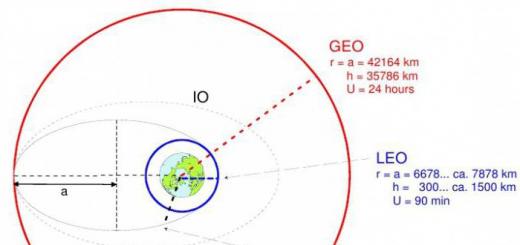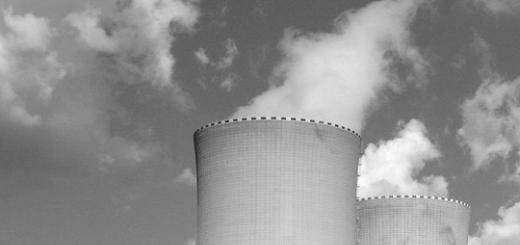NATURAL AND ANTHROPOGENIC OBJECT A natural object modified as a result of economic and other activities, and (or) an object created by man, possessing the properties of a natural object and having recreational and protective value (Article 1 of the Law)
Dictionary of business terms. Akademik.ru. 2001 .
See what a "NATURAL-ANTHROPOGENIC OBJECT" is in other dictionaries:
Natural-anthropogenic object- a natural object modified as a result of economic and other activities, and (or) an object created by man, possessing the properties of a natural object and having recreational and protective significance; ... Source: Federal Law of 10.01.2002 N ... Official terminology
natural-anthropogenic object- A natural object modified as a result of economic and other activities, and (or) a human-made object that has the properties of a natural object and has a recreational and protective value. [Federal Law of January 10, 2002 No. 7 FZ ... Technical Translator's Handbook
NATURAL AND ANTHROPOGENIC OBJECT- a natural object modified as a result of economic and other activities, and (or) an object created by man, possessing the properties of a natural object and having recreational and protective value ... Legal Encyclopedia
See Natural emergency. Edwart. Glossary of terms of the Ministry of Emergency Situations, 2010 ...
State registration of rights to real estate and transactions with it- 1. State registration of rights to real estate and transactions with it (hereinafter also state registration of rights) is a legal act of recognition and confirmation by the state of the occurrence, restriction (encumbrance), transfer or termination ... ...
Book 2. Normative references. Definitions- Terminology Book 2. Normative references. Definitions: 1. State registration of rights to real estate and transactions with it (hereinafter also state registration of rights) is a legal act of recognition and confirmation by the state of the occurrence ... Dictionary-reference book of terms of normative and technical documentation
The situation in a certain territory or water area that has developed as a result of the occurrence of a source of a natural emergency that can cause or has caused human casualties, damage to human health and the environment, ... ... Emergencies Dictionary
GOST 17.5.1.01-83: Nature protection. Land reclamation. Terms and Definitions- Terminology GOST 17.5.1.01 83: Nature Protection. Land reclamation. Terms and definitions of the original document: 59. Biological reclamation Reclamation aimed at an intensive increase in the fertility of disturbed lands, productivity ... ... Dictionary-reference book of terms of normative and technical documentation
This term has other meanings, see Azerbaijan (meanings). Republic of Azerbaijan Azərbaycan Respublikası, Azәrbaјҹan Republics ... Wikipedia
-
an object created by man to meet his social needs and does not have the properties of natural objects.
Watch value Anthropogenic Object in other dictionaries
An object- object, m. (Latin objectum - Subject) (book). 1. That which exists outside of us and independently of us, the external world (philos.). The coincidence of a thought with an object is a process. Lenin. 2. Item,........
Explanatory Dictionary of Ushakov
An object- m. latin. opposite object. subject or self. and m. the glass of the telescope, facing the object, is opposite. eyepiece, eye glass. obvious signs that can ........
Dahl's Explanatory Dictionary
Anthropogenic App.- 1. Created by man, resulting from his activities.
Explanatory Dictionary of Efremova
Anthropogenic— oh, oh. [from Greek. anthrōpos - man and -genēs - giving birth, born]. Appeared as a result of human activity; generated by human activity. Ah, pollution.
Explanatory Dictionary of Kuznetsov
An object- (Latin ob ectum object) - an object that is part of the external, material world; the subject of knowledge and activity of a person, a subject.
Political vocabulary
Policy Object- (from the Latin "objectum" - subject) - that which opposes the subject of politics in his activity, that which the subject's efforts are directed at. The objects of politics include political ........
Political vocabulary
Political Science Object- - politics, the political life of society in its most diverse manifestations.
Political vocabulary
Subject and Object in Politics- - in political science, reflective concepts denoting interaction in politics and showing the vector of its direction. An object in politics is that part of political reality, ........
Political vocabulary
An object- -a; m. [from lat. objectum - subject]
1. Philos. That which exists outside of us and independently of us; the external world, reality, which is directed to the subject-practical ........
Explanatory Dictionary of Kuznetsov
Alternate Additional Object- a group of public relations that are harmed by an encroachment on the main object at the choice of the person committing the crime (Article 163 of the Criminal Code: the main object -........
Law Dictionary
Anthropogenic Object- - an object created by man to meet his social needs and does not have the properties of natural objects.
Law Dictionary
Architectural Object- - according to the definition of the Federal Law "On architectural activity" of October 18, 1995 "a building, structure, a complex of buildings and structures, their interior, landscaping, landscape ........
Law Dictionary
An object- Borrowed from Latin, where objectum is derived from objicere - "to throw towards." In addition, in Russian there is a word that translates the Latin objectum - an object.
Etymological Dictionary of Krylov
Substance as an object of invention- - individual chemical compounds, compositions and products of nuclear transformation, characterized mainly by qualitative and quantitative composition.
Law Dictionary
View Object- a part of a generic object that unites social relations of the same type, protected by criminal law. The division of sections into chapters is based on a view object. Species ........
Law Dictionary
water feature- - the concentration of water on the surface of the land in the forms of its relief or in the depths, having boundaries, volume and features of the water regime. V. o., which together form the water fund ........
Law Dictionary
Additional Object- public relations that are harmed or a threat of harm is created in the event of an encroachment on the main object. For example, in Art. 162 of the Criminal Code - in case of encroachment ........
Law Dictionary
Single Water Object- Surface waters and lands covered by them and associated with them (bottom and banks of a water body) are considered as a single water body. Groundwater and containing ........
Law Dictionary
Identified Object (Identified)- - an object, the signs of which are established, in relation to which the question of identity is being decided in each specific case.
Law Dictionary
Identifying Object (identifying)— - an object on which the properties of the identified object are displayed.
Law Dictionary
Inventory Object- - a complete device with all fixtures and fittings for it, or a separate structurally separate item designed to perform ........
Law Dictionary
Integrated Circuit (as an Intellectual Property)— An article in its final or intermediate form, intended to perform an electronic function, in which the elements, at least one of which is active ........
Law Dictionary
Required Additional Object- is always associated with the infliction of this or that harm to him, or with the threat of harm in the event of an encroachment on the main object (Article 162 of the Criminal Code: a necessary additional object is human health).
Law Dictionary
Immediate Object- a part of a specific object, which is a specific social relationship that is violated or threatened with violation by a specific crime. expressed........
Law Dictionary
Detached Water Object (enclosed Pond)- - a small area and stagnant artificial reservoir that does not have a hydraulic connection with other surface water bodies. Water Code of the Russian........
Law Dictionary
General Object- a set of social relations protected by criminal law. They are listed in Part 1 of Art. 2 of the Criminal Code: human and civil rights and freedoms, property, public........
Law Dictionary
An object- (lat. objectum) - in the economy: enterprises, organizations, means and factors of production, elements of the social sphere, characterized as O., in which it is concentrated or on ........
Law Dictionary
Depository Activity Object— - securities issued by residents of the Russian Federation. In accordance with the requirements of federal laws and other regulatory legal acts, the object of the depository ........
Law Dictionary
Object of Voluntary Medical Insurance— The object of voluntary medical insurance is the insured risk associated with the costs of providing medical care in the event of an insured event .........
Law Dictionary
Animal World Object- - an organism of animal origin (wild animal) or their population. Federal Law No. 52-FZ of April 24, 1995, Art. 1
Law Dictionary
from the Greek anthropos - man and genes - giving birth, born) - an object created by a person to meet his social needs and does not have the properties of natural objects (Federal Law of January 10, 2002 N 7-FZ "On Environmental Protection"). A.o. do not have properties that are typical and stable for natural objects: natural, evolutionary (not as a result of human activity) nature of origin, being in a system of natural relationships with other natural objects. In the Federal Law "On Environmental Protection", anthropogenic objects, along with natural objects, are included in the concept of "environment"; the attitude in scientific circles to this fact is twofold: 1) positive: "the inclusion of anthropogenic objects in the concept of the environment can have far-reaching theoretical and practical consequences ..." (see: Bogolyubov S.A. New Federal Law "On Environmental Protection Wednesday" // Journal of Russian Law. 2002. N 6. P. 56-63.); 2) negative: "historically, Russian environmental legislation regulates relations that arise in the process of interaction between society and the natural environment" (see: Vasilyeva M.I. Model Law of the Subject of the Russian Federation "On Environmental Protection". 2006. N 1), and anthropogenic objects are not objects of nature, and human interaction with anthropogenic objects is not a subject of environmental law.
Environment- a set of components of the natural environment, natural and natural-anthropogenic objects, as well as anthropogenic objects.
Favorable environment- the environment, the quality of which ensures the sustainable functioning of natural ecological systems, natural and natural-anthropogenic objects.
natural object- natural ecological system, natural landscape and their constituent elements that have retained their natural properties;
natural landscape- a territory that has not been changed as a result of economic and other activities and is characterized by a combination of certain types of terrain, soils, vegetation, formed in uniform climatic conditions.
Components of the natural environment- land, subsoil, soils, surface and underground waters, atmospheric air, flora, fauna and other organisms, as well as the ozone layer of the atmosphere and near-Earth outer space, which together provide favorable conditions for the existence of life on Earth;
Natural-anthropogenic object- a natural object modified as a result of economic and other activities, and (or) an object created by man, possessing the properties of a natural object and having a recreational and protective value;
anthropogenic object- an object created by man to meet his social needs and does not have the properties of natural objects.
Components of the natural (natural) environment as an object of its use by man:
· natural objects- a complete ecological unity inseparable from nature, interacting with the surrounding natural and social environment.
· Natural resources– a separable component of natural objects that has properties (qualities) that are useful for humans. These are components of the natural environment, natural objects and natural-anthropogenic objects that are used or can be used in the implementation of economic and other activities as energy sources, production products and consumer goods and have consumer value.
· Natural complexes– parts of the natural system, specially isolated by the state as a standard of nature (unique, typical). Subject to protection. This is a complex of functionally and naturally interconnected natural objects, united by geographical and other relevant features.
Main characteristics of natural goods:
natural goods are public goods and have no market value. The fact that many natural goods are not sold on the market (clean air, landscapes, etc.) is a significant difficulty in determining their economic value.
· them joint consumption- the consumption of a public good by one individual does not reduce the possibility of consumption of this good by another individual. Lack of competition: the same good can be used simultaneously by different individuals, but the utility of none of them is reduced because of this (for example, radio and television)
· them non-exclusivity means that one person cannot exclude another from consuming the resource. The consumption of public goods cannot be prevented by any individual. For example, the consumption of clean air by one person does not reduce its consumption by others.
Many environmental products are public property and/or open access resources. The combination of weak legal protections against overuse (or full open access) together with the free or cheap use of these resources leads to over-exploitation, sometimes to the complete degradation of a natural good. Tropical rainforests, marine fisheries, and the assimilative capacity of the seas are examples of such over-exploitation.
From a public interest point of view, it must be taken into account that
The negative environmental result of economic activity is the production public anti-goods- various kinds of pollution, waste, etc. These anti-goods are the opposite of useful goods.
Under (1) eco-economic system refers to the integration of the economy and nature, which is an interconnected and interdependent functioning of social production and natural processes in nature.
(2) Ecological-economic system - a system limited by a certain territory and representing a part of the technobiosphere, in which natural, social and production structures and processes are connected by mutually supporting flows of the circulation of matter, information energy.
Socio-ecosystem(socio-natural system, socio-ecological system)- a complex complex of biogenic, abiogenic components, as well as components that ensure human life, socio-economic and socio-cultural functioning of society (infrastructure, etc.).
The subject of environmental law is formed objectively, apart from the will and consciousness of a person. Objectivity is due to the fact that nature satisfies the various interests and needs of man and society. The latter is interested in adequate regulation of its interaction with nature for at least two reasons. The first relates to self-interest associated with the satisfaction of their needs. The second is due to the knowledge of the laws of development of nature. By virtue of their action, a person must protect not only his own interests, but also the interests of other species. The principle of respect for all forms of life has been formulated as one of the principles of the draft International Pact on Environment and Development. In Russian law, this principle is implemented by regulating the protection of flora and fauna objects in special legislation.
§ 3
Object of ecological relations
Object of ecological relations- socially significant natural values, about which social relations are formed and regulated in law.
The specificity of the object predetermines the features of social relations regulated in environmental law and forming its subject.
Reflecting the integrated and differentiated approaches implemented in practice to the legal regulation of social relations in the field of interaction between society and nature, modern legislation singles out the following as independent objects of such relations:
environment (environment, natural environment, nature);
natural complexes;
individual natural objects or resources.
The environment (environment, natural environment, nature) is an integrated object, while others are differentiated objects.
If we consider the issue of an integrated object in a historical aspect, then in the environmental law of Russia until the 90s of the twentieth century. he was nature .
Nature(in the natural-scientific sense) - a set of objects and systems of the material world in their natural state, which is not a product of human labor activity.
In a legal sense along with the totality of objects and systems of the material world in their natural state in the concept of "nature" some objects created by human labor are also reasonably included: artificially planted forest, fish grown at fish factories and released into a reservoir, a wild animal released into land for permanent habitation. The main criteria for defining an object as an element of nature are inseparability from natural conditions, inseparability of ecological ties, and non-isolation from the action of elemental forces.
Nature as a set of objects and systems of the material world in their natural state is the whole Universe, including the Earth, the Sun, space. But as an object of relations regulated by the norms of environmental law, the concept of "nature" is limited by the limits of practical human use and anthropogenic impact on it.
As an integrated object of environmental relations, the concept of "nature" is rarely used in modern environmental legislation and law. It is unreasonably ousted from this industry by the concept of "environment". The few laws containing requirements for nature protection include the Constitution of the Russian Federation, in Art. 58 everyone has the duty to preserve nature and the environment.
The Law on Environmental Protection also uses this category as a synonym for the natural environment. Natural environment (nature) is defined in it as a set of components of the natural environment, natural and natural-anthropogenic objects.
The concept of "environment" as an object of environmental relations was borrowed from foreign law, where it has a broader content. As a rule, there it includes, along with natural elements, objects of the social environment, such as, for example, monuments of history and culture. The inclusion of elements of the social environment in the content of the environment allows the existing systems of foreign legislation.
Environment- a set of components of the natural environment, natural and natural-anthropogenic objects, as well as anthropogenic objects.
The Law on Environmental Protection defines not only the concepts of the environment, but also its individual components (components).
Components of the natural environment- this is the earth, bowels, soils, surface and underground waters, atmospheric air, flora, fauna and other organisms, as well as the ozone layer of the atmosphere and near-Earth outer space, which together provide favorable conditions for the existence of life on Earth.
natural object- this is a natural ecological system, a natural landscape and its constituent elements that have retained their natural properties.
Natural - anthropogenic object- a natural object modified as a result of economic and other activities, and (or) a human-made object that has the properties of a natural object and has recreational and protective value.
anthropogenic object- an object created by man to meet his social needs and does not have the properties of natural objects.
We draw the attention of the legislator to the scientifically unfounded expansion of the concept of the environment in the Law.
In the science of intensively formed Russian environmental law, much attention was paid to the content of the concept of the environment. Along with this concept, Russian legislation uses related concepts: “habitat” (Federal Law of March 30, 1999 No. 52-FZ “On Sanitary and Epidemiological Well-Being”) and “living environment” (Urban Planning Code of the Russian Federation). These concepts are broader in content in comparison with the concept of the environment and correctly include the latter in their content. It is important to emphasize that the concepts of "habitat" and "living environment", along with elements of the natural environment, correctly include objects of the social environment. Due to the fact that the legislator has defined the environment as a legal category that includes, along with natural components, an anthropogenic object, questions arise about the public needs for this, the validity and, most importantly, the availability of appropriate legal mechanisms for their protection.
The legislator does not name those anthropogenic objects that need to be protected by the norms of environmental law along with natural objects - atmospheric air or water. It is known that a huge number of objects have been created by man to meet his social needs, which do not have the properties of natural objects. This is, in particular, a car, telephone, chair, etc. It is not clear how, with what tools the legislator is going to protect them with environmental law and why?
An analysis of the legislation in the historical aspect convinces us that in environmental law the concepts of "environment", "environment", "natural environment", "nature" are identical. Respectively, the environment can be defined as the natural environment (natural environment, nature), i.e. a set of natural complexes, natural objects and natural resources, including atmospheric air, water, earth, soil, subsoil, flora and fauna, as well as climate and near-Earth outer space, in their interconnection and interaction.
Although the concept of “nature” is almost never used in environmental legislation, relations regarding the use and protection of nature are actually regulated by regulating the use and protection of its complexes, individual objects or resources. In the science of environmental law, reasonable proposals are made to abandon the use of the concept of the environment in Russian law in favor of the concept of "nature".
Natural complexes- natural ecological systems and other aggregates of natural objects and resources - are an independent object of environmental relations, regulated by the norms of environmental law.
natural complexes are specially protected natural areas (state nature reserves, national parks, resorts, etc.), special zones and other protected areas (water protection zone, sanitary protection zone, territories of traditional nature management, etc.), inland sea, continental shelf, free economic zone, ecologically unfavorable territories, etc. The undoubted advantages of the current stage in the development of environmental legislation include, in particular, the adoption of a number of federal laws regulating public relations regarding natural complexes.
Separate natural objects and resources, regarding which social relations are formed, regulated by legislation, are land, soils, subsoil, water, atmospheric air, forests and flora outside forests, wildlife, near-Earth space. As independent objects of regulation in legislation and law, parts of individual natural objects (resources) are distinguished - the ozone layer, rare and endangered species of plants and animals, climate as a weather regime characteristic of a particular area.
natural object- the whole set of natural matter of one type - earth, subsoil, water, atmospheric air, forests and wild flora outside forests, wild fauna, etc. - on a global or national scale.
natural resource - a narrower concept in comparison with a natural object is a part of natural objects used by man to satisfy his needs.
For example, the animal world is very diverse. These are fish, hunting game, mosquitoes, etc. All species together form the animal world as a natural object. At the same time, the animal world as a natural resource is formed only by species that are used by humans. Interestingly, according to the Law of the RSFSR "On the Protection of Nature in the RSFSR" (1960), only useful wild fauna belonged to the objects of protection.
To create an optimal legal mechanism for ensuring the rational use and protection of natural objects (resources), they are classified into exhaustible and inexhaustible; renewable and non-renewable; recoverable and irreplaceable. Taking into account the specific characteristics of a particular natural resource, the legislator establishes legal requirements for its use and protection.
Is a person an object of ecological relations? There is no direct positive or negative answer to it in the legislation. In the doctrine of environmental law, this issue has also received little attention so far. However, based on the analysis of the current Russian legislation on the environment, it can be argued that a person can also be classified as a protected object. Man is an organic element of nature. Taking into account the specifics of his body, he is also ecologically dependent on the state of water, atmospheric air, as a deer or a wild flower is dependent on them. Without water, both man and flower perish. In a polluted environment, both humans and deer degrade. To the extent that a person is connected ecologically with the natural environment by his health and life, he is a part of nature and, accordingly, one of the objects of its protection. This is confirmed by the provisions of the legislation on the regulation of maximum permissible concentrations (MPC) of pollutants in water, atmospheric air and soil and the regulation of maximum permissible levels (MPC) of harmful effects on the environment. MPC and MPC standards are set at a level that meets the interests of protecting human health and flora and fauna.
Being a biosocial being, a person and his interests simultaneously act in environmental law as objects of indirect protection. We are talking about a person's property that can suffer from the harmful effects of polluted air, water or soil. So, agricultural crops, domestic animals, buildings, structures can suffer. Accordingly, every person has the right to compensation for damage caused to his property by an environmental offense.
§ 4
Methods of legal regulation of environmental relations
Legal regulation method- this is a set of techniques, methods and forms of expression of specific regulatory properties and functions inherent in the rules of law of a given industry.
The method of legal regulation can also be defined as a specific way of legal influence established by the rules of law on the behavior of participants in legal relations to exercise the powers of the owner of natural resources, to ensure rational use of natural resources, protect the environment, environmental rights and legitimate interests of individuals and legal entities. In science and law, a number of methods are distinguished - imperative, dispositive, incentives, etc. In environmental law, these methods are sometimes used in combination with each other.
The essence of the administrative-legal method of legal regulation consists in establishing a prescription, permission, prohibition, in ensuring state coercion to proper behavior and the execution of legal prescriptions. One of the parties in administrative relations is the authorized body of the state. Accordingly, the parties are in unequal relations - between the participants in administrative legal relations, relations of power and subordination are formed. In environmental law, the administrative-legal method is mediated in specific forms - regulation, examination, certification, licensing, etc. It manifests itself in the establishment by the authorized state body of permissible emissions of pollutants into the environment, which must be observed by enterprises - nature users, the issuance of special licenses to these enterprises for such a release, in permission to make a decision on the construction, for example, of the St. others
Civil - legal method of legal regulation based on the equality of the parties to the legal relationship. In civil - legal relations, their participants usually act as equal subjects, independent of each other. By means of an agreement (agreement) concluded between them, they themselves determine their rights and obligations, which, however, must comply with the law and be within its framework. An example of such an agreement can be an agreement between an enterprise that generates production waste and a transport enterprise for the transportation of waste to recycling facilities.
In the context of the transition to a market economy, in connection with the improvement of civil, business legislation, the civil - legal method is used in this branch of law more and more widely.
Incentive Method consists in establishing provisions in the legislation aimed at stimulating subjects of environmental law (as a rule, users of natural resources) to take and implement measures on their own initiative to effectively comply with the requirements of environmental legislation. These provisions include, in particular, the establishment of fees for negative impacts on the state of the environment; establishment of tax and other benefits provided to state and other enterprises, institutions and organizations, including environmental protection, in the implementation of low-waste and waste-free technologies and industries, the use of secondary resources, and the implementation of other activities that provide an environmental effect; exemption from taxation of certain subjects (or objects), for example, environmental funds, specially protected natural areas; the use of incentive prices and premiums for environmentally friendly products; introduction of special taxation of environmentally harmful products, as well as products manufactured using environmentally hazardous technologies; the use of concessional lending to enterprises, institutions, organizations, regardless of the form of ownership, that effectively protect the environment.
§ 5
The concept of environmental law as a complex branch of Russian law
Environmental law is a complex branch in the system of Russian law. Sometimes it is called a super-branch, since it includes a number of independent branches of law recognized as such - land, water, mining, air protection, forestry and fauna.
The complex nature of the branch of environmental law is determined, however, not by this circumstance, but by the fact that public environmental relations are regulated both by their own rules and by the rules contained in other branches of Russian law, including civil, constitutional, administrative, criminal, business, financial, agricultural and others. The process of reflecting environmental requirements in these branches of law is called greening respectively civil law, criminal law, business law, etc. So, in Ch. 26 of the Criminal Code of the Russian Federation regulates criminal liability for environmental crimes. The RF Code of Administrative Offenses contains Ch. 8 "Administrative offenses in the field of environmental protection and nature management". The Tax Code of the Russian Federation regulates the collection of so-called environmental taxes (Ch. 25.1, 25.2, 26, etc.).
Given the complex nature of the branch of law under consideration, two fundamental questions arise: what other branches of law should regulate environmental relations and to what extent? These issues are significant because their solution predetermines the scope and effectiveness of the environmental function of the state.
The general rule regarding the greening of "other" legislation regulating social relations affecting the environmental rights and interests of society is as follows. In accordance with Art. 42 of the Constitution of the Russian Federation, everyone has the right to a favorable environment. At the same time, the Constitution of the Russian Federation establishes that the rights and freedoms of man and citizen are directly applicable. They determine the meaning, content and application of laws, the activities of the legislative and executive authorities, local self-government and are provided with justice (Article 18). From this constitutional provision, it follows that in the process of development and improvement of each branch of Russian legislation, the legislature should provide for legal measures specific to each of them to ensure the correct attitude of society towards nature, taking into account the interests of both nature itself, due to its inherent value, and man, based, in particular, on the necessity and possibility of ensuring the right of everyone to a healthy environment.
What do we mean by environmental law? The content of this concept should be determined from the standpoint of modern theory of law and taking into account the fact that law is intended to serve as a means of building a rule of law state in Russia. In doing so, a number of factors must be taken into account. In theory, law is considered as a set of legal norms, social relations and legal ideas. Considering the law as the main source of law, law in a constitutional state cannot be indifferent to the content of the law. From these positions, the law can be legal (if it corresponds to the ideas of law) and non-legal (when it does not correspond to them). The same should be said about other sources of law - by-laws. This refers to some fundamental truly legal ideas - freedom, equality and justice. Since the idea, as the basis of law, is subjective, it has only the power of authority. Therefore, law includes as its element an idea that has received normative consolidation.
The role of law as a regulator of behavior is realized through the impact of legal norms on specific social relations that form the subject of this industry.
The formation of environmental law as a complex industry has left its mark on the mechanism of action of its rules. Its main elements are environmental regulation, environmental impact assessment, environmental expertise, licensing, economic measures, certification, audit, control, as well as the application of legal liability measures provided for by labor, administrative, criminal and civil law.
environmental law- a set of norms based on environmental and legal ideas that regulate public relations of ownership of natural resources, to ensure the rational use of natural resources and protect the environment from harmful chemical, physical and biological effects in the process of economic and other activities, to protect environmental rights and legitimate interests individuals and legal entities and specific legal relations in these areas.










